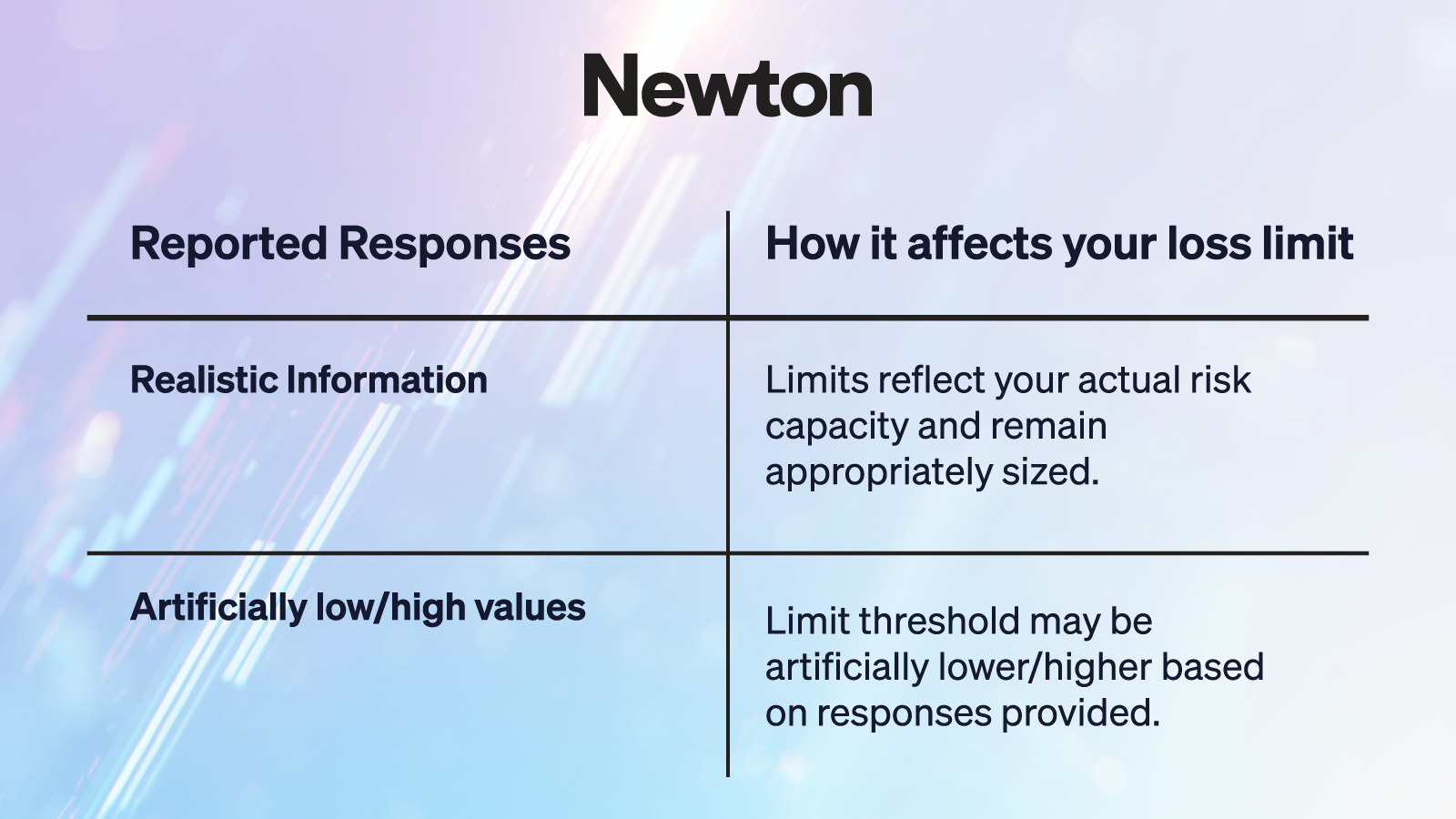.png)
.png)
When you open an account with Newton, we ask a few questions about income, assets, risk tolerance, and your familiarity with crypto markets and crypto trading. We require and use this information to set your account’s loss limit. Your answers are self-declared, not shared, and are used to determine account settings and your account’s loss limit threshold.
All registered Canadian crypto trading platforms will require that their clients go through a similar process: providing identification and answering some personal questions, and their financial ability and willingness to take risks. At first, this might feel like a disconnect, especially in a space where Bitcoin’s anonymous creator launched a token that can still be traded peer-to-peer. But this process exists to align crypto trading with Canadian regulations, build a safer environment for investors, and ultimately protect you as you participate in these markets.
Why We Ask These Questions
Crypto has been around for a decade now, and a lot has changed since its inception. What began in a “code is law” environment that sometimes felt like the law of the jungle is now woven into regulations across the globe. As adoption grows, policymakers and everyday investors have all moved in the same direction: building a future for digital assets with greater clarity and investor protection.
We understand some people hesitate to answer honestly because of privacy concerns, without realizing it can affect how their account settings work in practice. If you have any questions, remember that we only collect, use, and disclose your personal information with your consent, unless otherwise permitted or required by law. To learn more, visit our privacy policy.
To set your account’s loss limit, we ask about your income, net worth, crypto experience, and comfort with risk. This process is standard across regulated Canadian crypto trading platforms and is intended to allow us to determine whether a crypto trading account might be right for you and, if so, to align your account settings with the information you provide.
Your response to the questions asked in the questionnaire are:
Based on the information you provide, a loss limit threshold is calculated for your account, intended to serve as a safeguard in the event that you approach or exceed your loss limit. You will receive a notification if you are approaching or exceeding this threshold. If you receive a notification, your account will temporarily be restricted until you acknowledge it on the platform.
Repeatedly reaching your loss limit can result in further restrictions. If this occurs several times within a year, your account may be placed in a 30-day cool-down period during which crypto buys and fiat deposits are paused.

Loss Limits are not about restricting opportunity. Limits are part of our Canadian regulatory requirements designed to encourage responsible participation in digital assets. You will receive a notification if you are approaching or exceeding your account’s loss limit thresholds. By answering honestly, you ensure your loss limit reflects real life circumstances. This way your account settings include guardrails and alerting intended to reflect the information you provide in your responses.
As your experience in the market grows or your financial situation changes, it is important to update your account information as regulations require us to rely on the responses that you provide. Keeping your profile current helps make sure your account limits continue to reflect where you are today, not where you were when you first signed up.
For more details on how loss limits work at Newton, visit our Knowledge Base article:
What are portfolio loss notifications (loss limits)?
Do I need to provide documents to prove my answers?
No. The information is self-declared. We do not ask for supporting documents.
Why do you ask about my income and assets?
Canadian regulations require registered platforms to set trading loss limits. Your answers help us calculate a limit that aligns with your financial position, experience with crypto, and declared risk tolerance.
What happens if I enter low values?
Your loss limit will be set very low. If you hit it four times in a year, your account will enter a cool-down period where trading is paused for approximately 30 days.
Do you automatically share my answers with the CRA?
No. Your answers are not automatically shared with the Canada Revenue Agency. We will only collect, use and disclose your personal information with your consent, unless otherwise permitted or required by law.
Entering “$0” income and $1 net worth with a 50% loss tolerance → only $0.50 loss limit.
Tip: Update your answers if your situation changes